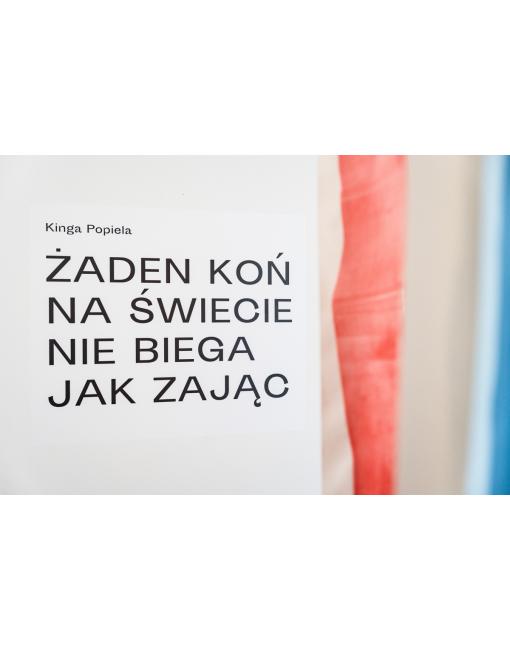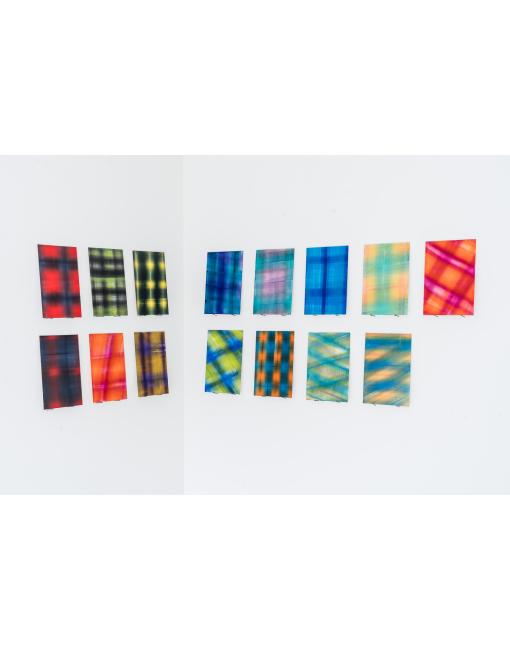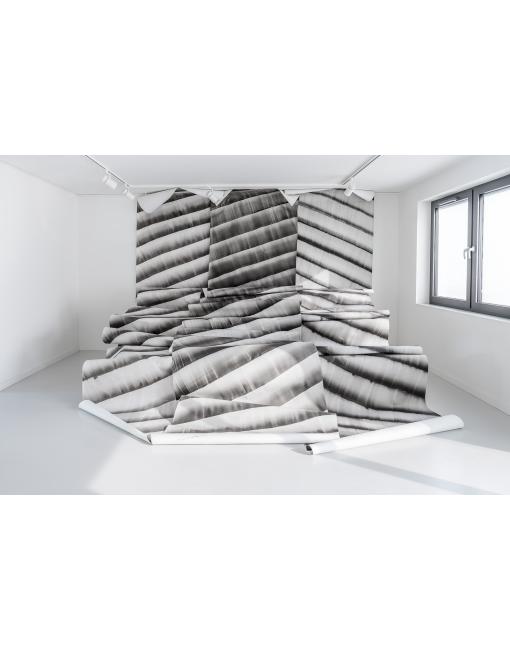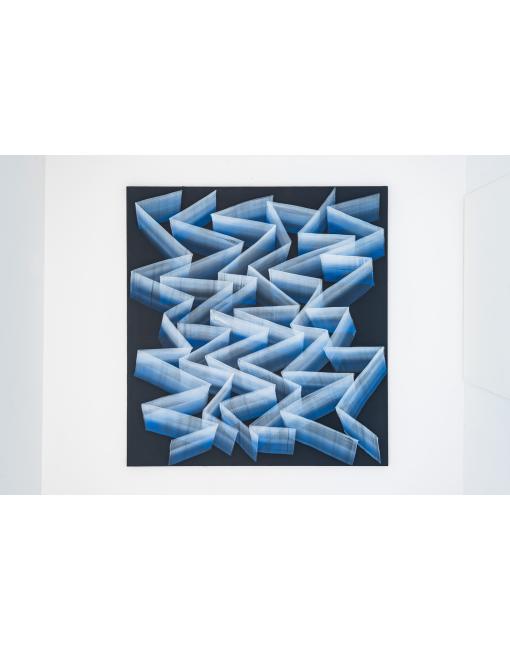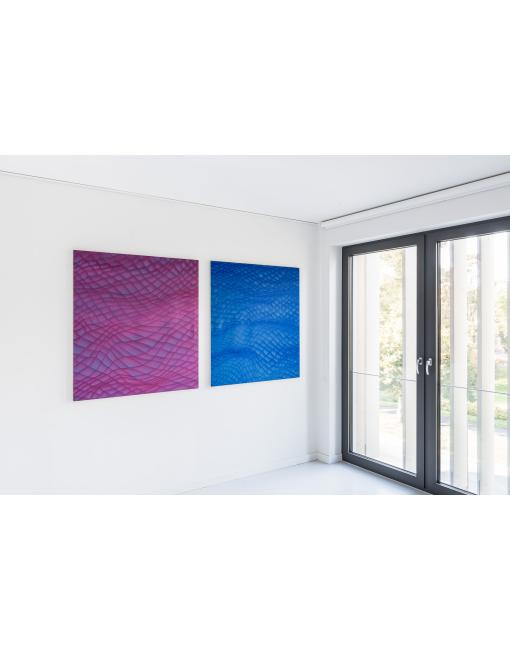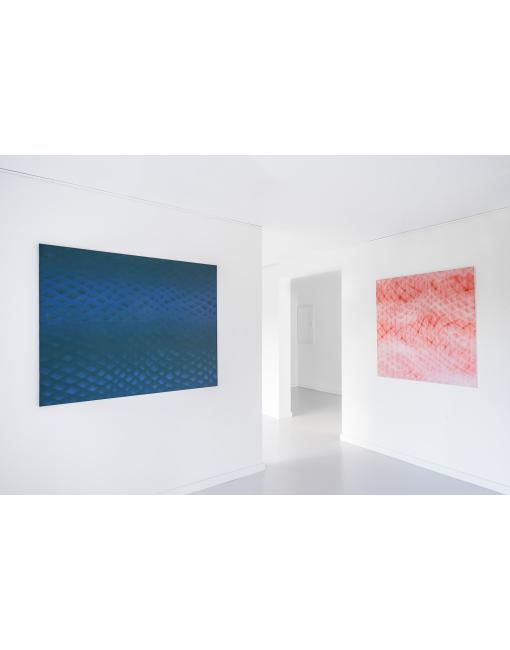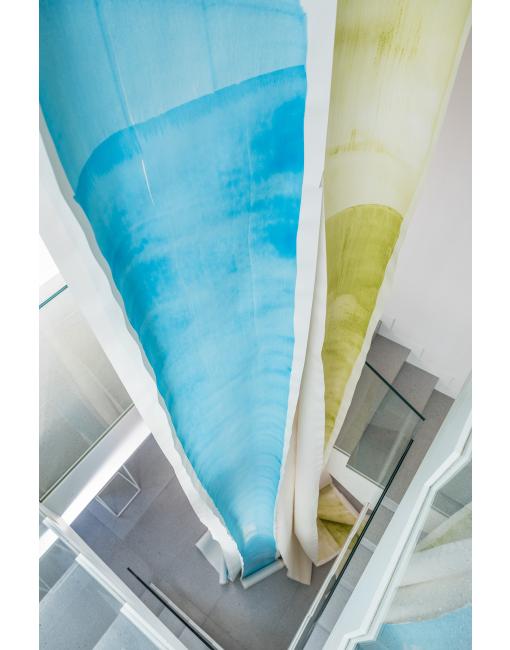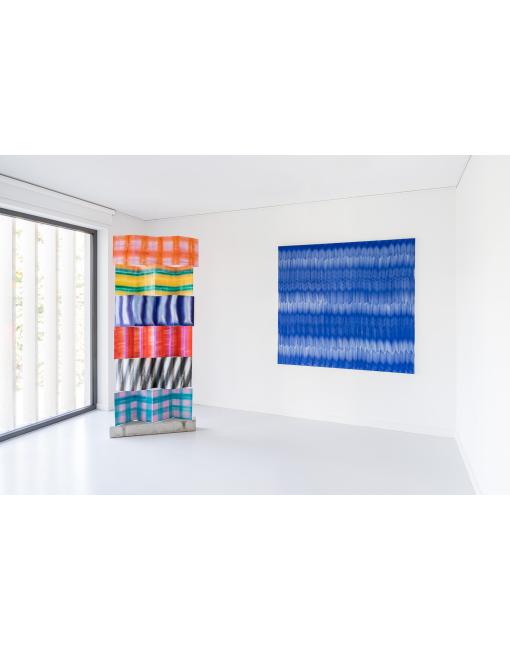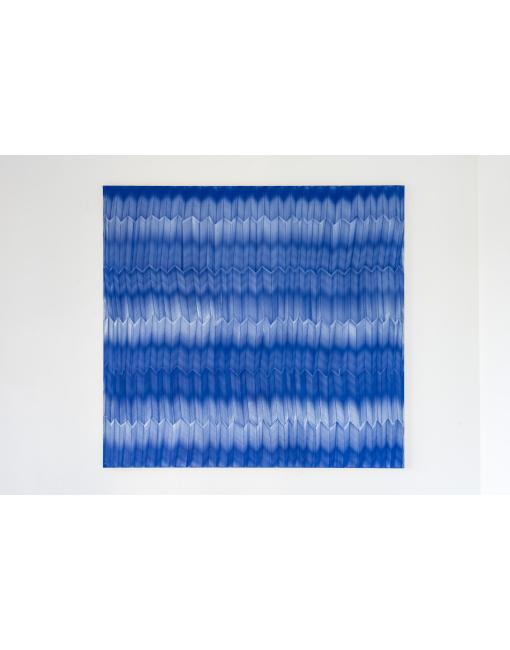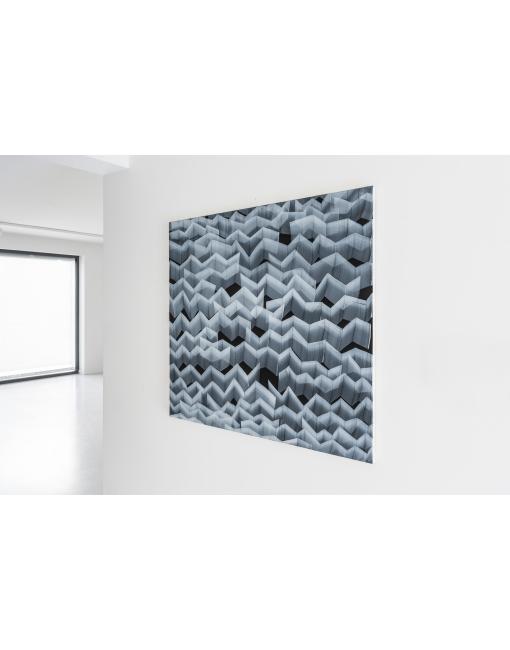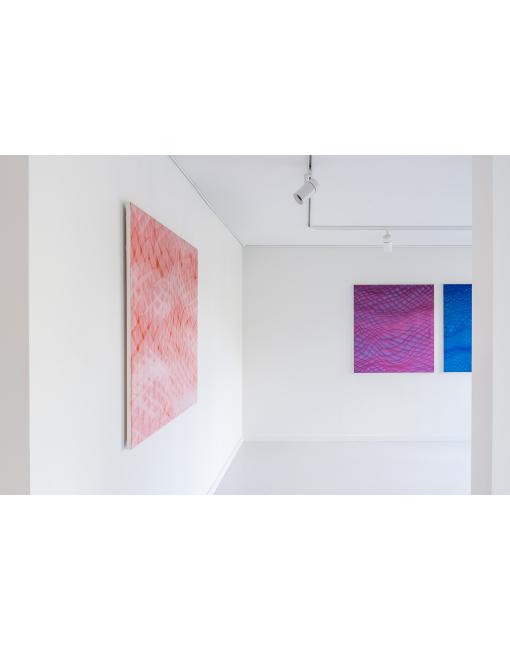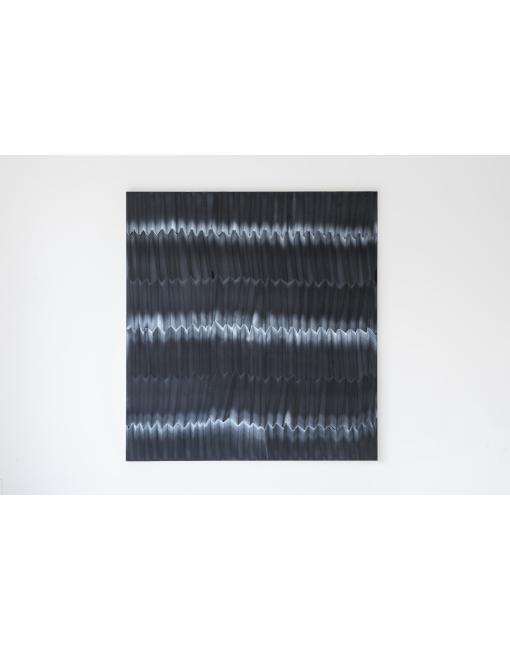Kinga Popiela No horse in the world runs like a hare
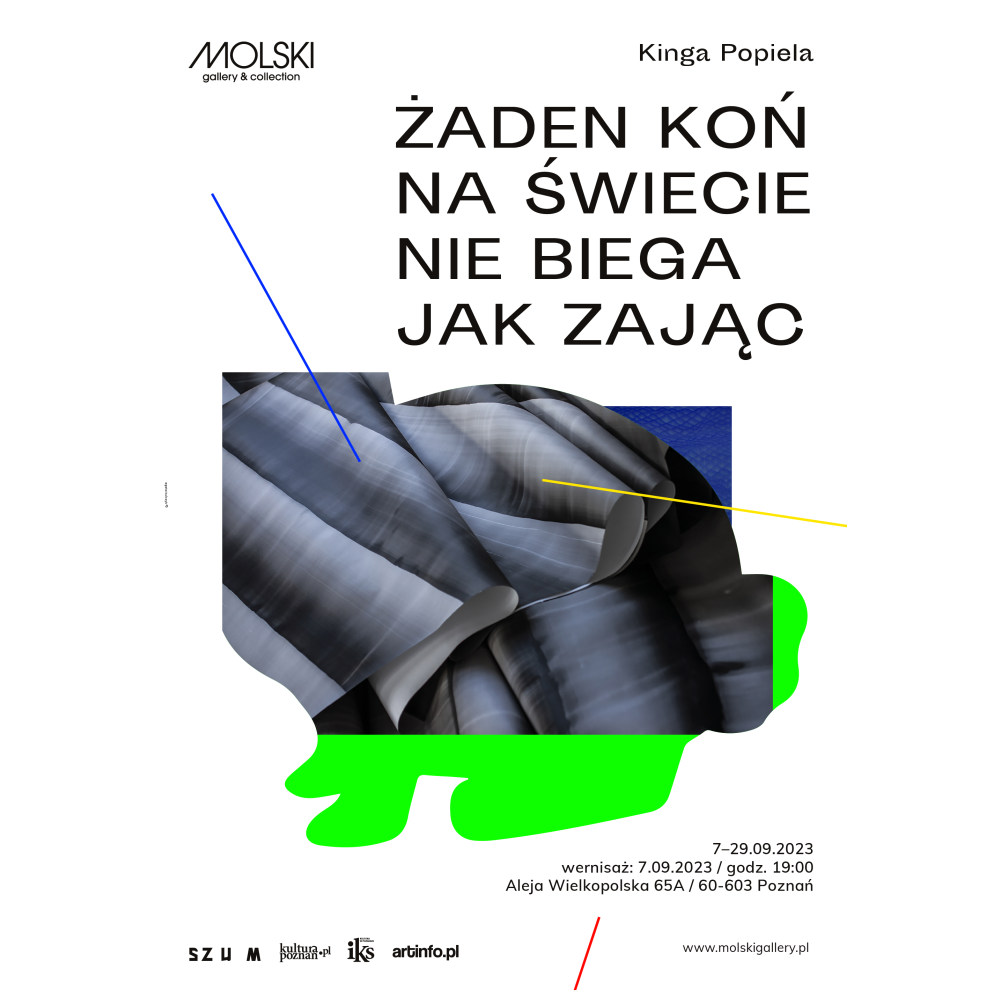
What if what generates the impulse to create a work is the very need to create it? The desire to physically work and make contact with the canvas. The feeling in one's own body of the direction of the brush stroke. The viscosity of the paint. The softness of the paper. Getting to know the painting through one's own body.
What if the issues of developing one's own technique are more important than the aesthetic layer? If the essence is not what is in the painting, but why it was created; what influenced it to exist? For what reason does it have its material form consisting of a set of diverse structures, forms, signs, symbols and colors?
Searching for a problem and then trying to solve it through painting characterizes Kinga Popiela's work. The intellectual dimension of her painting is centered first in the creative gesture itself. In her own words: Looking from the perspective of the creator, the painter, significantly stimulates the imagination in the context of the creative process and the particular moment of creation of the work. The painter, being at the same time the creator and the viewer of his action, vividly reacts to every trace, gesture, spot of color that arises in the painting. He does not need to realize the rules of combining these elements with each other; his body knows how it should respond to a new stimulus[1]. From this perspective, the resulting image appears as a consequence of action, which is an end in itself. The artist's close-minded thinking of painting as the handcrafted production of things places the craftsman's need to create an image in the foreground. Painting conceived as a physical function does not weave a narrative around what the subject of the painting is, but focuses on why and how the story of its creation is to be told. The painting's task is not to record or imitate reality, but through its very BEING - to indicate that it involuntarily becomes an integral part of creating it.
Objects exert a strong influence on the environment in which they are placed, and thus change perception. They have performative power, making them a space that is a kind of portal to another world. The artist, as a creator, has the privilege of showing and inviting the audience to experience parallel realities precisely through the image.
Rarely when looking at art do we think about what is an image to the artist? It seems that Popiela is constantly searching for the answer to this question in her work. Her work is accompanied by tension and uncertainty. She paints quickly. The notion of a painting gesture, which is at the center of her work, is the result of the accumulating energy in her body, which she evokes in the form of a painting.
The resulting work is never perfect. It is never an exact reflection of what it was meant to be. The beauty of Kinga Popiela's paintings lies in their imperfection, impulsiveness and lack of intentionality. She leaves a piece of herself in every work she creates. Through the movement of her body she enlivens the artistic matter to let it arbitrarily find its place in reality.
The title of the exhibition, "No horse in the world runs like a hare," comes from Orham Pamuk's book titled "The Red. "My Name is Red." This abstract and, in a way, frivolous in its overtones phrase seemingly signals an exhibition of figurative works, providing a wide field for interpretation of art that in its essence is a deconstruction of the art of representation. The exhibition at MOLSKI gallery&collection will present around 20 works by Kinga Popiel from cycles created over the last five years, i.e. Hylemorphism, Meaninglessness, Crushing Rocks, among others, as well as the latest objects and drawings created especially for the September exhibition at MOLSKI gallery&collection in Poznan.
Vernissage: 07.09.2023 at 7 pm.
MOLSKI gallery&collection;
Aleja Wielkopolska 65A, Poznan
Exhibition: 07 - 29.09.2023
[1] Kinga Popiela, POSTPISCTOR. Tool body; 2021; p.53.


